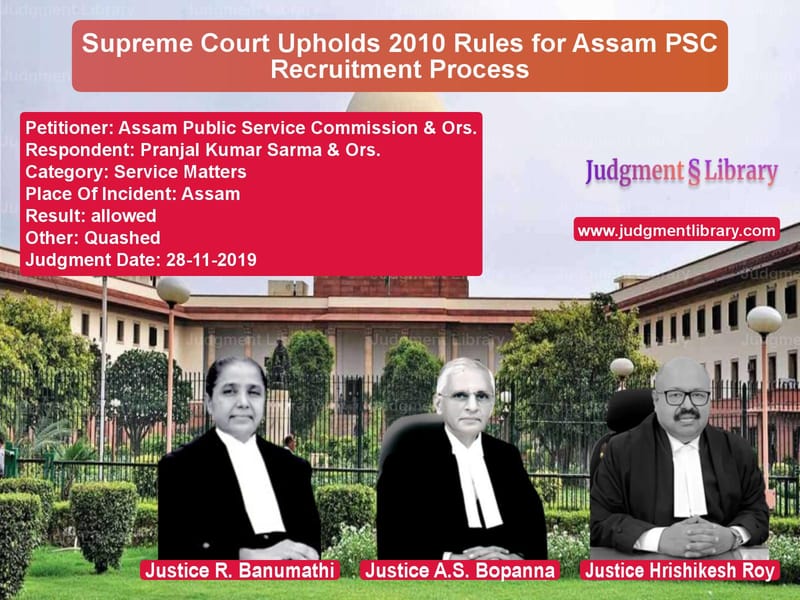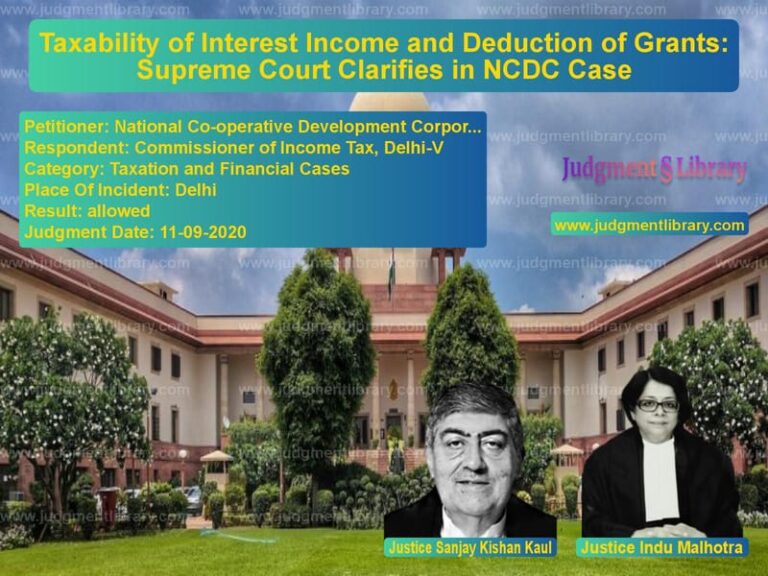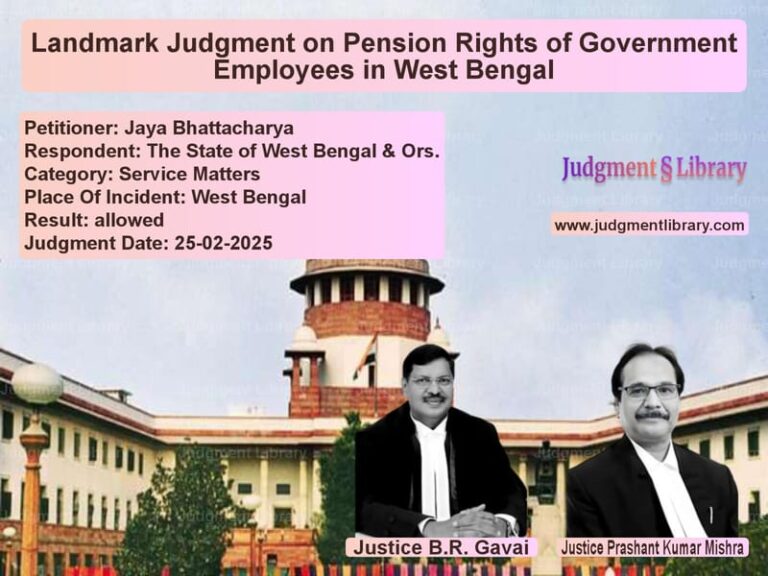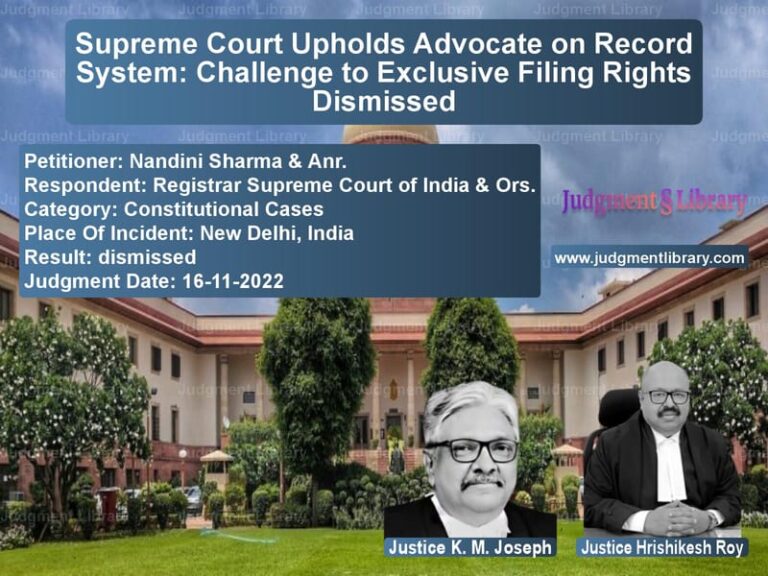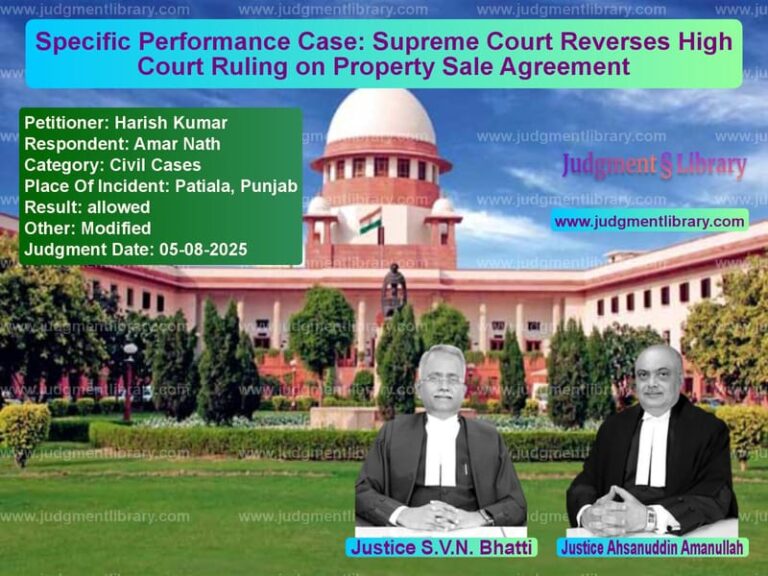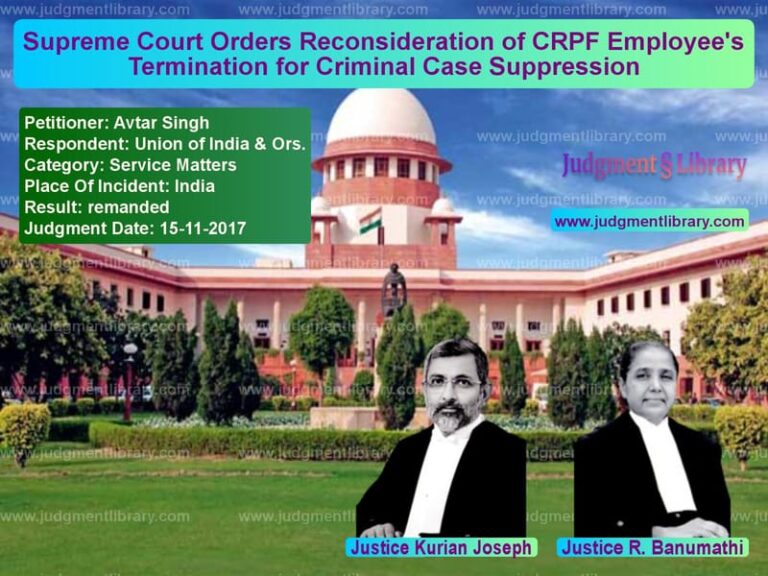Supreme Court Upholds 2010 Rules for Assam PSC Recruitment Process
The Supreme Court of India recently ruled in favor of the Assam Public Service Commission (APSC), affirming that the recruitment process initiated under the Assam Public Service Commission (Procedure and Conduct of Business) Rules, 2010, must be completed under the same set of rules, even if new rules are introduced midway. This decision came in the case of Assam Public Service Commission & Ors. v. Pranjal Kumar Sarma & Ors., where the primary question was whether an ongoing recruitment process could be altered by applying new procedural rules.
Background of the Case
The dispute arose from the recruitment of 65 Assistant Engineers (Civil) under the Water Resources Department in Assam. The APSC had issued an advertisement on December 21, 2018, for these positions. At the time of advertisement, the selection process was governed by the Assam Public Service Commission (Procedure and Conduct of Business) Rules, 2010 (hereinafter referred to as the ‘2010 Rules’). However, on April 1, 2019, the APSC introduced a new set of procedural rules, the Assam Public Service Commission (Conduct of Business) Procedure, 2019 (hereinafter referred to as the ‘2019 Procedure’).
The 2019 Procedure introduced significant changes, including a new marking system with negative marking in the screening test and alterations in the weightage for interviews. The primary contention in the case was whether the selection process should continue under the 2010 Rules or be modified to align with the 2019 Procedure.
Legal Issues
- Can an ongoing recruitment process be altered by introducing new procedural rules?
- Do the principles of fairness and transparency require that candidates be evaluated under the rules in effect at the time of advertisement?
- Does the savings clause in the 2019 Procedure preserve the validity of processes initiated under the 2010 Rules?
Arguments by the Petitioner (APSC)
The APSC, through its counsel, contended that:
- The recruitment process was initiated before the introduction of the 2019 Procedure, and the screening test had already been conducted under the 2010 Rules.
- Applying the new rules midway would create an unfair disadvantage for candidates who had taken the screening test under different evaluation criteria.
- The 2019 Procedure itself contained a savings clause (Clause 12.2), which allowed ongoing recruitment processes to continue under the previous rules.
- The High Court’s ruling altered the selection criteria in a manner that was inconsistent with established legal precedents.
Arguments by the Respondent (Pranjal Kumar Sarma & Others)
The respondents, who were candidates in the selection process, argued that:
- The 2019 Procedure was introduced to enhance transparency and fairness in the recruitment process.
- Since the interview phase had not yet begun, it should be conducted under the 2019 Procedure to ensure that merit, rather than arbitrary discretion, played a greater role.
- The 2010 Rules did not adequately assess candidates based on their qualifications and knowledge, whereas the 2019 Procedure provided a more structured evaluation system.
Supreme Court’s Observations
The Supreme Court carefully analyzed the implications of applying different rules to different phases of the same recruitment process and made the following key observations:
1. Established Legal Principle: Recruitment Rules on the Date of Advertisement Prevail
The Court reaffirmed that the rules in force on the date of advertisement govern the recruitment process unless explicitly stated otherwise. Citing previous rulings, including State of Bihar & Ors. v. Mithilesh Kumar (2010) and N.T. Devin Katti & Ors. v. Karnataka Public Service Commission (1990), the Court stated:
“A candidate has a limited right of being considered for selection in accordance with the rules as they existed on the date of advertisement, and he cannot be deprived of that limited right by amendment of the rules during the pendency of the selection, unless the rules are to be applied retrospectively.”
2. Unfair Disadvantage to Candidates
The Court emphasized that the screening test had already been conducted under the 2010 Rules without negative marking. Changing the evaluation criteria midway would result in unfairness, as candidates had taken the exam without considering the possibility of penalties for incorrect answers.
3. Validity of the Savings Clause
The 2019 Procedure contained a savings clause (Clause 12.2) that explicitly stated that pending recruitment processes should be completed under the previous rules. The Court held that this clause was valid and should be applied in the present case.
4. Risk of Dual Evaluation Standards
Allowing the interview stage to be conducted under the 2019 Procedure while the screening test was conducted under the 2010 Rules would create an inconsistent evaluation process. The Court held that a single recruitment process must be governed by uniform rules.
Supreme Court’s Verdict
The Supreme Court overturned the Gauhati High Court’s ruling and directed that the recruitment process for the 65 Assistant Engineer (Civil) posts in the Water Resources Department must be completed under the 2010 Rules. The Court concluded:
“For the current recruitment process, the 2019 Procedure (which came into effect from 01.04.2019) can have no application, particularly when the first phase of the selection i.e., the screening test was conducted under the 2010 Rules.”
Impact of the Judgment
This ruling has significant implications for public service recruitments:
- It reaffirms the principle that recruitment processes must be governed by the rules in place at the time of advertisement.
- It upholds the validity of savings clauses in newly introduced rules to protect ongoing selection processes.
- It ensures consistency in evaluation criteria across different stages of a selection process.
Conclusion
The Supreme Court’s decision in APSC v. Pranjal Kumar Sarma provides a clear precedent on the application of recruitment rules. It ensures that candidates are assessed fairly under a single set of norms and prevents the arbitrary introduction of new rules midway through the selection process. The ruling underscores the importance of legal certainty and procedural fairness in public service recruitments.
Petitioner Name: Assam Public Service Commission & Ors..Respondent Name: Pranjal Kumar Sarma & Ors..Judgment By: Justice R. Banumathi, Justice A.S. Bopanna, Justice Hrishikesh Roy.Place Of Incident: Assam.Judgment Date: 28-11-2019.
Don’t miss out on the full details! Download the complete judgment in PDF format below and gain valuable insights instantly!
Download Judgment: Assam Public Service vs Pranjal Kumar Sarma Supreme Court of India Judgment Dated 28-11-2019.pdf
Direct Downlaod Judgment: Direct downlaod this Judgment
See all petitions in Recruitment Policies
See all petitions in Public Sector Employees
See all petitions in Employment Disputes
See all petitions in Judgment by R. Banumathi
See all petitions in Judgment by A. S. Bopanna
See all petitions in Judgment by Hrishikesh Roy
See all petitions in allowed
See all petitions in Quashed
See all petitions in supreme court of India judgments November 2019
See all petitions in 2019 judgments
See all posts in Service Matters Category
See all allowed petitions in Service Matters Category
See all Dismissed petitions in Service Matters Category
See all partially allowed petitions in Service Matters Category

